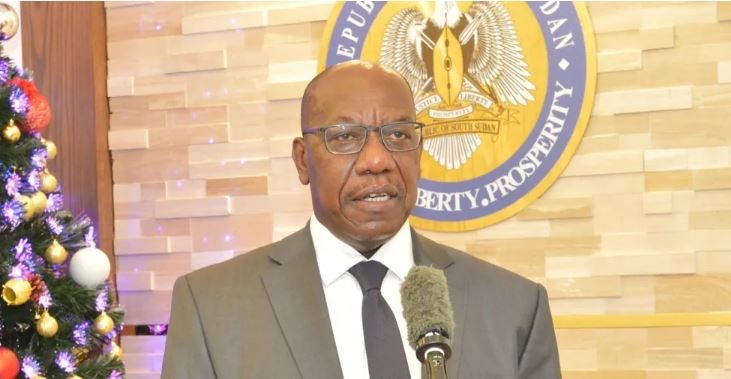By Charles K Mark
Reconstituted Joint Monitoring and Evaluation Commission (R-JMEC), the body tasked with monitoring the implementation of South Sudan’s 2018 peace agreement, is pressing for the swift passage of the long-delayed National Security Bill.
R-JMEC’s Senior Governance Advisor Dr. Job Akuni, who spoke on behalf of Interim Chairperson, General Charles Tai Gutai stated that the bill should be enacted and operationalized promptly.
“There is no doubt that a conducive environment which permits political and civic engagements to thrive is one that is secure,” Akuni stated, underscoring the need for the bill to harmonize the electoral landscape ahead of projected elections.
“As in any democracy, the credibility of any elections necessitates, among others, concerted efforts towards nurturing, enhancement, guaranteeing and protection of political and civic space,” he echoed.
He added, “Civic space; the set of legal, policy and practical conditions that support the ability of citizens to organize and engage in order to advance their interests – is being publicly recognized as a key concern at local and national levels.”
South Sudan has ratified various regional and international human rights agreements, which the advisor say the new national security framework must align with in order to protect fundamental freedoms.
This includes the African Charter on Democracy, Elections and Governance, and the International Covenant on Civil and Political Rights.
The delays in passing the bill have raised concerns, with some activists and analysts warning that the lack of a modernized national security architecture could undermine the credibility of upcoming elections.
“The delay of the National Security Bill not being passed urgently will contribute to the delay of the elections,” cautioned Edmund Yakani, Executive Director of the Community Empowerment for Progress Organization in an earlier interview.
Political analyst James Boboya has alleged that there are conflicts of interest within the parliament, with some parties advocating to retain powers of arrest without warrant that would conflict with the constitution.
“It was clear that other powers that the national security system used to have had a conflict with the constitution and the mandate of the police service, which is why it had to be removed from the bill,” Boboya explained early this year.
The bill was initially presented by the Justice Minister in 2023, however, lawmakers paused deliberations to allow for further review and scrutiny.




